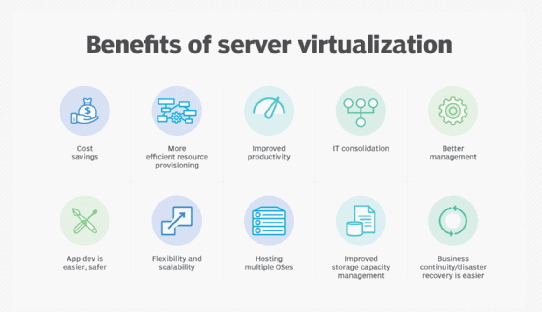What Are the Benefits of Virtual Machines?
Virtual machines (VMs) typically refer to separate OS installations on a single computer, with each OS having a share of the computer’s system resources. As an example, a Linux VM may be installed on top of your Windows PC. Several OS installations can coexist on the same physical machine at the same time, so long as the machine has capable enough hardware. This makes VMs a convenient way to extend your desktop and server environments. Other benefits of VMs include easy provisioning and maintainability, and high availability.
Benefits of Virtual Machines
There are many benefits to using virtual machines in your organization, including the following:
- Cost savings
- Easy provisioning
- Increased productivity
- Efficient DevOps
- Environment-friendly IT operations
- Full isolation means more security
- Portability means that VMs can run old applications better
- Better resource allocation means better ability to run resource-intensive applications
- Versatility means the ability to allocate persistent storage

